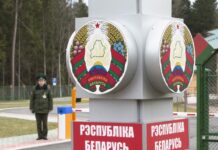
Due to higher energy costs, food prices in major Lithuanian grocery chains have risen over the past year, mostly for dairy products, grains and bread. Buckwheat rose 47 percent, natural yogurt – 42 percent, chicken – 40 percent, milk – 39 percent, sunflower oil – 37 percent. Only fish prices fell, with Atlantic salmon down 10 percent. The price of mineral water did not increase. Compared to last year, the cost of four out of five food products is higher in 2022.
With food price inflation in double digits, Lithuanians worry they will need to spend significantly more in order to have their traditional holiday table at Easter. Eggs are now the most sought-after product in shops and farmers’ markets, as is traditional just before Easter. Chicken farms are not raising their prices, but eggs still cost more in most supermarkets. According to Statistics Lithuania, prices of chicken eggs have risen by 6 percent, on average, over the year. The cheapest eggs are almost 40 percent more costly.
According to the price comparison website Pricer.lt, white eggs did not cost more than 0.8 euro per packet of ten last year, and now they are more expensive even during promotions.
With a lot of white eggs coming from Ukraine, this year they will no longer be 69-79 cents per packet, but 1.20-1.30 euros.
Economists note that although food is definitely at its most expensive in a decade, the situation is only worse than last year, due to consumers’ greater purchasing power.
With food and energy becoming more expensive on the markets, the government has started to think about how to mitigate the price hikes. Anti-inflationary measures will be presented by Easter at the latest, said prime minister Ingrida Šimonytė.
“This year, revenues, which depend on the budget, have been indexed to a large extent, but yes, the impact on prices of the war in Ukraine will be much greater than we expected when we were planning the budget […]. We will require additional measures, which the government will present with the budget adjustments,” said the prime minister.
High inflation is expected to persist throughout this year. But it may not reduce consumption – as money depreciates, spending does not decrease, say experts. LRT





























